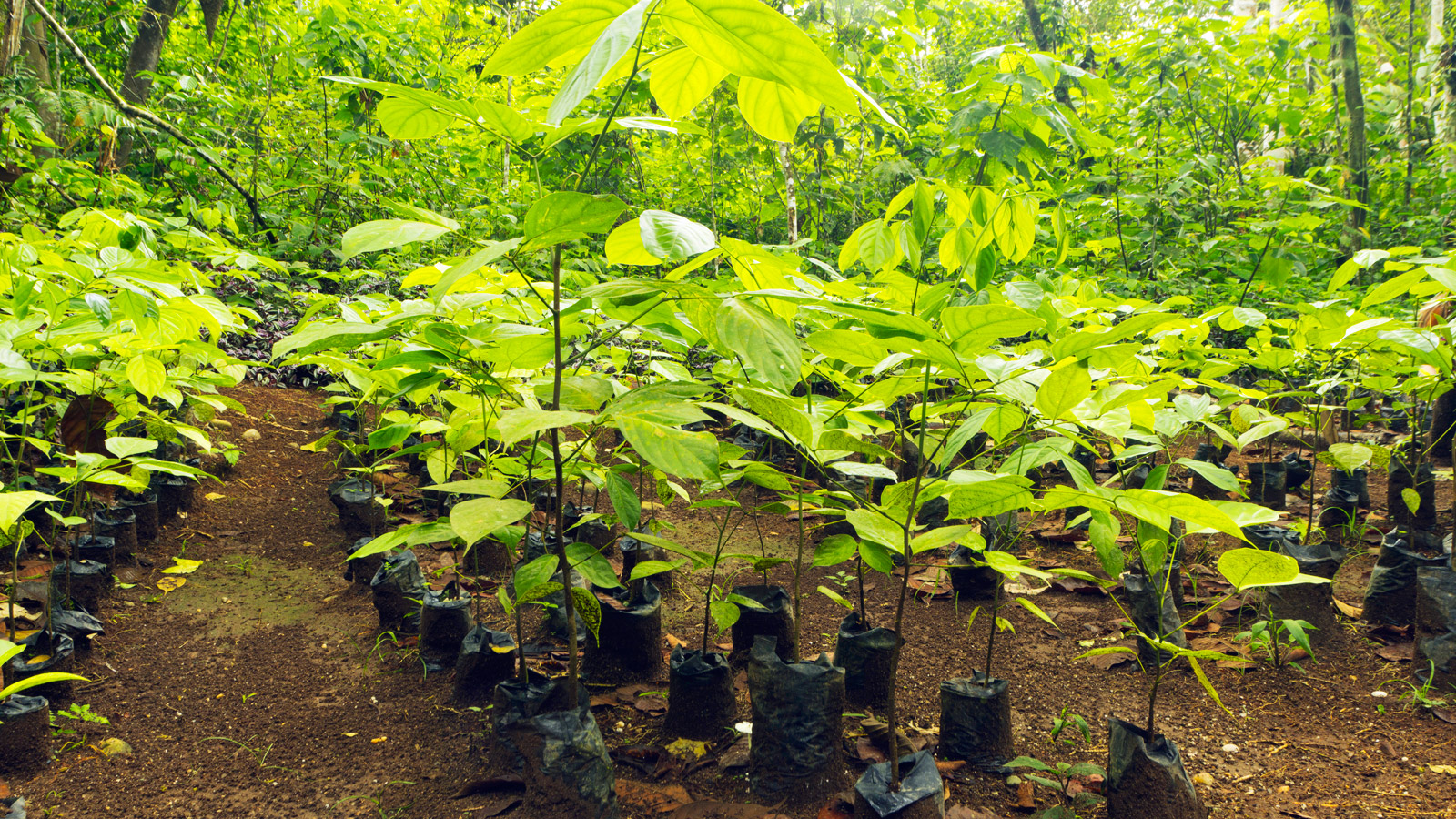POSTED ON
August 13, 2016 BY Scott Doggett
When Trees Are Worth More Alive

3
 2220
2220  0
0 
Something was wrong. The mother mahogany trees were gone. The year: 1996. The place: wooded hills beside a road that linked several villages in western Panama. My taxi driver and I stopped at one village and asked what had happened to the giant trees that should have been present.
Men from Panama City came and paid $50 for each of the mother mahogany trees, we were told. The men fell the trees, chain-sawed them into lumber, and hauled the lumber away. Fifty bucks for a magnificent tree with a trunk 3 meters in diameter and a crown 50 meters tall.
Several mother trees remained, the villagers said, far from the road. We walked to one and in its shadow I proposed the following: gather the seeds that fall from this tree and others like it, put dirt and one seed in each of the small bags that I’ll provide, water the dirt once a day, and I will buy the seedlings that sprout.
"I will pay 20 cents for each seedling, and I will buy thousands from you," I told the villagers. "You will make hundreds of dollars each year from me and you will keep your mother trees."
I owned 220 acres on a nearby island and could have bought seeds and grown the seedlings myself. That's the kind of thing tree farmers do, and I was a part-time tree farmer back then. But I saw a confluence of opportunities that I couldn't resist: the chance to save some mother trees, the chance to help a poor village, and the chance to get the villagers to view mother hardwood trees as a sustainable source of income.
In the years that followed I bought thousands of seedlings from the village and I watched with delight as it went from having no nursery to having a thriving nursery selling seedlings from mahogany, cocobolo and other hardwood trees. And I admit to being gleeful when I learned that other villages saw the benefits of protecting their mother trees and created nurseries of their own.
In all, I spent more than US$5,000 on seedlings. That was more than enough for the villagers to tell the loggers where they could go when they returned with their saws and their trucks and their expectations of murdering centuries-old trees at fifty bucks a pop.
Men from Panama City came and paid $50 for each of the mother mahogany trees, we were told. The men fell the trees, chain-sawed them into lumber, and hauled the lumber away. Fifty bucks for a magnificent tree with a trunk 3 meters in diameter and a crown 50 meters tall.
Several mother trees remained, the villagers said, far from the road. We walked to one and in its shadow I proposed the following: gather the seeds that fall from this tree and others like it, put dirt and one seed in each of the small bags that I’ll provide, water the dirt once a day, and I will buy the seedlings that sprout.
"I will pay 20 cents for each seedling, and I will buy thousands from you," I told the villagers. "You will make hundreds of dollars each year from me and you will keep your mother trees."
I owned 220 acres on a nearby island and could have bought seeds and grown the seedlings myself. That's the kind of thing tree farmers do, and I was a part-time tree farmer back then. But I saw a confluence of opportunities that I couldn't resist: the chance to save some mother trees, the chance to help a poor village, and the chance to get the villagers to view mother hardwood trees as a sustainable source of income.
In the years that followed I bought thousands of seedlings from the village and I watched with delight as it went from having no nursery to having a thriving nursery selling seedlings from mahogany, cocobolo and other hardwood trees. And I admit to being gleeful when I learned that other villages saw the benefits of protecting their mother trees and created nurseries of their own.
In all, I spent more than US$5,000 on seedlings. That was more than enough for the villagers to tell the loggers where they could go when they returned with their saws and their trucks and their expectations of murdering centuries-old trees at fifty bucks a pop.
By Scott Doggett, Reno, Nevada, U.S.A.
| Kindness Map |
|---|
| Kindness Partner's Information |
|---|
| Name | |
| Street Address | |
| City | Miraflores |
| State/province | Bocas del Toro |
| Country | Panama |
| Post Code | |
| Contact | |
| Contact's Title | |
| Phone | |
| Website | |
| Source |
| KiVi Notes |
|---|